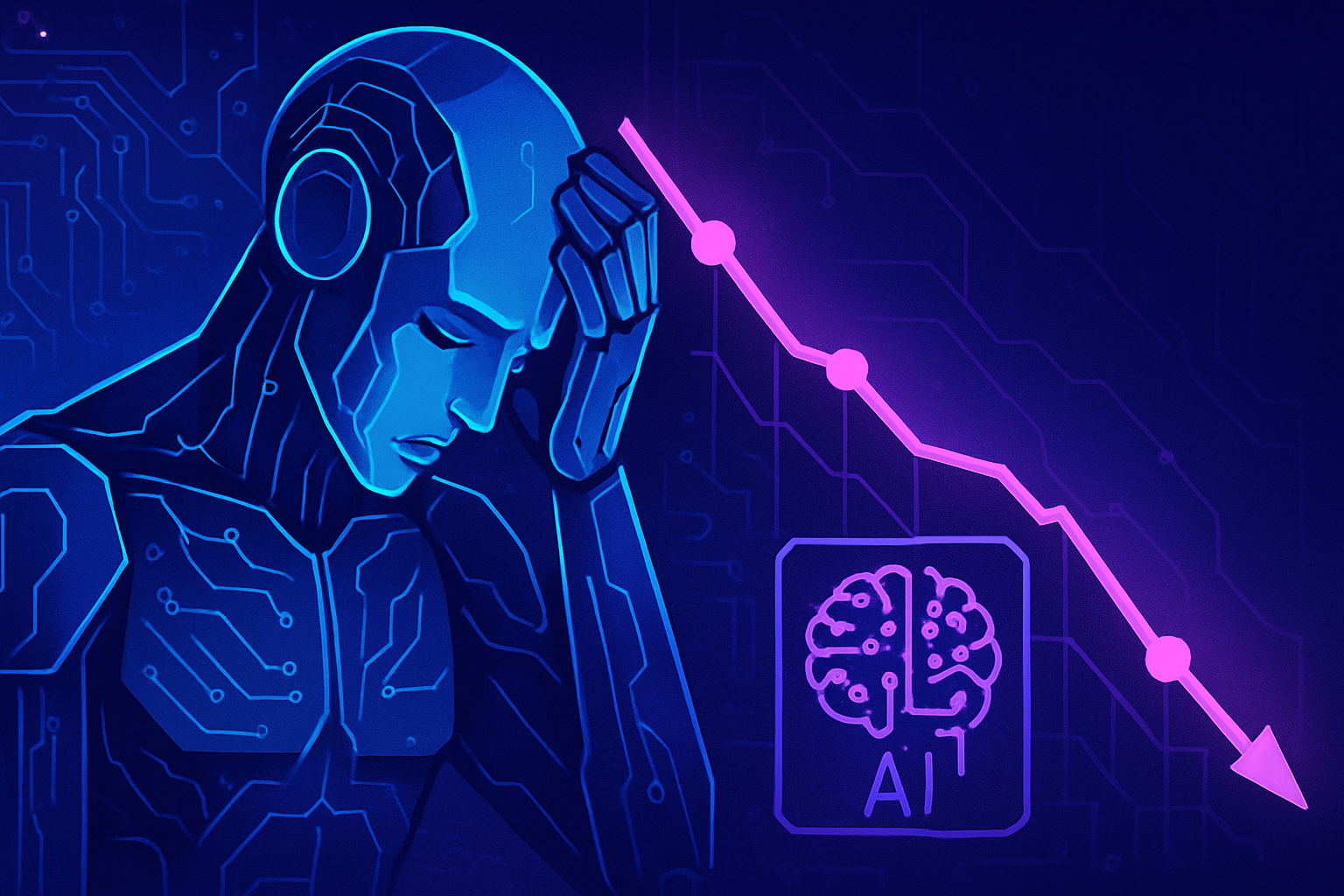The emergence of advanced artificial intelligence models raises fundamental questions. A recent study highlights a total collapse of accuracy when faced with problems of increased complexity. Apple researchers reveal fundamental limits in the reasoning capabilities of these systems, raising concerns in the technology industry. The models’ inability to process complex queries suggests an unexpected crisis of their effectiveness. These results raise questions about the true strengths of AI and its quest for general intelligence.
Study on Advanced Artificial Intelligence
A study conducted by Apple researchers sheds light on the fundamental limitations of advanced artificial intelligence models. This research raises questions about the technology industry’s race toward increasingly powerful systems.
The Troubling Results of Reasoning Models
Large reasoning models (LRMs), an advanced form of AI, show a total collapse of accuracy when confronted with complex problems. The study indicates that these models lose their reasoning capacity when dealing with more difficult tasks.
The results reveal that standard AI models outperform LRMs in low-complexity tasks. In exercises such as the Tower of Hanoi puzzles and river crossing, LRMs face increasing difficulties.
Performance Diagnosis of the Models
As the complexity of problems increases, these models seem to reduce their reasoning effort, which is particularly concerning for experts. Researchers note that LRM performances collapse as they approach a critical accuracy threshold.
Implications and Reactions from the Community
Gary Marcus, an academic known for his warnings about AI, describes these findings as devastating. According to him, this raises questions about the ambitions of general AI, where a system could match human intelligence. The high expectations surrounding language models, such as those known as LLMs, seem unfounded.
The research also observed that the models waste computational power. They quickly find the correct solution for simple problems but first choose incorrect solutions for more complex problems before reaching the correct answer, resulting in a significant loss of efficiency.
Evaluation of the Limits of Current Approaches
The study’s results call for a reevaluation of the current direction in AI system development. The document concludes that contradictions arise when models approach their critical threshold; they lessen their reasoning effort while facing increasing difficulty.
Experts from various institutions, such as the Centre for People-Centered AI at the University of Surrey, assert that this study could signal that the industry is at a dead end in its current approaches. The research tested various models, including those from OpenAI and Google.
New Perspectives in AI
This finding raises doubts about the foundations of current models, suggesting that AI might face fundamental barriers concerning generalizable reasoning. The focus on puzzles constitutes a developing limitation, but the results are essential for enriching the discussions on the future evolution of artificial intelligence.
Comments from the relevant companies, such as OpenAI, Google, and Anthropic have been sought, but no response has been provided thus far. This study highlights the need to develop more suitable AI systems in the face of increasing complexity in the data world.
Implications for the Future
In light of these revelations, the effectiveness of AI technologies must be rethought. Apple’s study could serve as a starting point for deeper reflection on current practices and the real potential of AI in complex contexts.
The impacts of such research are felt not only in the technological domain but also in the business world, for instance, in how artificial intelligence is integrated into cryptocurrency systems, as suggested in the link about future cryptocurrency perspectives here.
Frequently Asked Questions about the Total Collapse of Accuracy of Advanced Artificial Intelligence in the Face of Complex Problems
What is the total collapse of accuracy in artificial intelligence models?
The total collapse of accuracy refers to the inability of advanced artificial intelligence models, such as large reasoning models, to provide accurate results when faced with high-complexity problems.
Why do advanced artificial intelligence models fail when faced with complex problems?
These models, when attempting to solve complex problems, sometimes begin to reduce their reasoning efforts, leading to incorrect results and performance “collapses,” even with potentially effective algorithms at their disposal.
What types of tasks do artificial intelligence models manage better?
Advanced artificial intelligence models perform better on low-complexity tasks, but as tasks become more complex, all types of models, including large reasoning models, experience a significant drop in their accuracy.
What implications does this have for the development of artificial general intelligence (AGI)?
The study’s results raise doubts about the viability of current approaches to achieve AGI, as there seem to be fundamental limitations in the generalized reasoning capabilities of AI models.
Which artificial intelligence models were tested in this study?
Among the models tested were OpenAI’s o3, Google’s Gemini Thinking, Anthropic’s Claude 3.7 Sonnet-Thinking, and DeepSeek-R1, each showing variable results in the face of problem complexity.
How did researchers evaluate the performance of artificial intelligence models?
The researchers tested the models with puzzle challenges, such as the Tower of Hanoi problem and the river crossing puzzle, to observe their reasoning abilities and their efficiency in solving problems of various complexities.
What are the risks associated with over-reliance on advanced artificial intelligence?
Over-reliance without a correct understanding of the limitations of AI models could lead to unrealistic expectations and problematic decisions in applications where high accuracy is essential.
What lessons can be learned from the results of this study for AI researchers?
This study emphasizes the importance of revisiting current artificial intelligence development methods to overcome the fundamental barriers that may hinder progress toward systems capable of complex reasoning.






